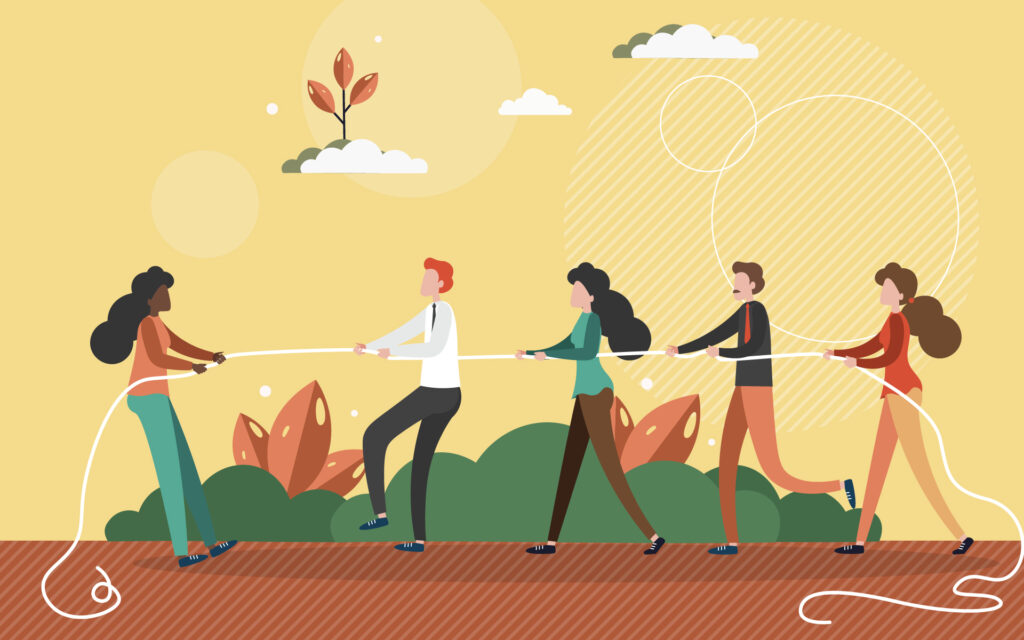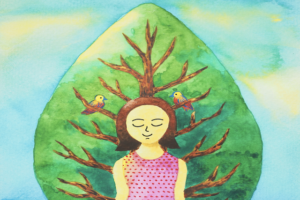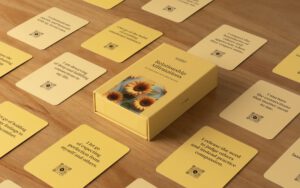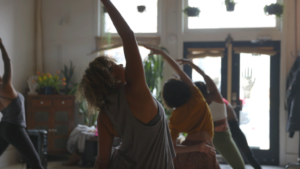Why Aggressions Are Not Micro and The way to Keep away from Them

Welcome again to our Racial Therapeutic Collection by Tovi Scruggs-Hussein. On this collection, we’re navigating uncomfortable truths about race, racism, and the othering that exists in our ethnocentric mainstream tradition. For many who’ve simply joined us, be at liberty to get caught up and try the primary 4 articles on this collection right here or dive proper in with us.
Earlier than we deal with the subject for our last article on this collection, it’s essential to take inventory of the matters now we have been working with up to now. Bias, White fragility, and the function disgrace performs in our capacity to course of race and racism in our every day lives have made for some deep reflection and a chance to study issues which are new to many people. On this article, we’ll discover microaggressions, one other wealthy subject, critically essential to growing a way of cultural humility and belonging.
As we start to not far away, transferring towards extra consciousness and understanding, please give your self a second to acknowledge and rejoice any delicate evolution you might expertise. You’ve begun to courageously dedicate your self to this studying and it makes a distinction. Let your self really welcome no matter discomfort nonetheless arises as an indication that the work is working. It turns into like muscle soreness after a tough exercise, a delicate sign of the evolution of your bettering stamina and resilience. On this occasion, the indicators of progress might present up in our personal considering and ways-of-being.
What Are Microaggressions?
Psychiatrist and researcher Dr. Chester Pierce coined the time period “microaggressions” circa 1970. Almost 4 a long time later, Dr. Derald Wing Sue and his colleagues dove deeper and crafted this definition: “Racial microaggressions are temporary and commonplace every day verbal, behavioral, and environmental indignities, whether or not intentional or unintentional, that talk hostile, derogatory, or detrimental racial slights and insults to the goal particular person or group.”
As our racial literacy has advanced, Dr. Ibram X. Kendi additional developed the definition in his second ebook, The way to Be an Antiracist, the place he states there’s nothing micro about microaggressions; they create misery, anger, fear, melancholy, nervousness, ache, and fatigue. He writes, “What different folks name microaggressions, I name racist abuse.” To some, the time period “abuse” might really feel excessive, but to many in our shared society, aggressions are part of every day life. Aggressions could be skilled by any marginalized group, together with these othered due to their gender, sexual orientation, neurodiversity, or capacity.
Aggressions Are Not Micro
I’ve chosen to hitch different thought leaders and have dropped the prefix “micro” from the time period “microaggression.” As analysis and numerous experiences have confirmed, for the targets of those so-called microaggressions, there’s nothing micro about them. Although they’ll appear innocent, and are generally unintentional, the impression is actual hurt as they’re perceived as derogatory or hostile. By making this nuanced change in terminology, the invitation is for members of the dominant teams (these committing microaggressions or not affected by them) to acknowledge the impression of their phrases, actions, and behaviors. From there, they’ll assist each other in therapeutic by continued studying.
3 Types of Aggressions
This part contains descriptions of colonialism and racism. Please take care.
Dr. Sue teaches that there are three forms of aggressions:
- Verbal: What is alleged. Statements like, “Is that your actual hair?” “Does your hair curl up like that simply from water?” “You already know, once I see you, I don’t see coloration,” “You actually are fairly for a Black lady,” “I couldn’t even inform you had been homosexual,” or ”The place are you actually from?” Usually, these are disguised as compliments.
- Behavioral: When folks ignore, interrupt, or invalidate. This may appear to be a White particular person clutching their belongings as a BIPOC (usually male on this occasion) walks by or joins them in an elevator, or a BIPOC being adopted in a retailer as a result of a workers member unjustly assumes they could steal one thing.
- Environmental: This may present up as a scarcity of illustration, assuming homogeneity, displaying insensitive language or symbols, and even bodily inaccessibility.
Refined examples can be the forms of messages on the partitions of a classroom or within the break room on the office. After I was a principal and we had been making ready school rooms to be extra equitable and embrace belonging, I recognized posters in school rooms that had been environmental aggressions: Two kittens on a poster, the white kitten had a halo over it and the black kitten had satan horns; the rap group N.W.A’s poster—you may’t learn the acronym with out saying the phrases that it stands for in your thoughts. The trainer who had the latter poster on their wall was trying to attach with college students, however their lack of cultural and racial consciousness made it in order that college students, colleagues, and neighborhood members needed to see the N-word on show there every day. It’s by no means acceptable to show anybody to such language unsolicited, whatever the racial id of the particular person utilizing the phrase, the explanation they’re utilizing it, or the id of the people who find themselves uncovered to it.
One other extra apparent instance is the ritualistic show of working the accomplice flag earlier than each house soccer sport as they did on the first highschool I taught at within the Bay Space in 1993. Sure, 19-ninety-3. It might be this very faculty the place, as its principal 20 years later, I’d dismantle the racist mascot who reigned for over 50 years—Colonel Reb, the picture of a accomplice colonel.
The traces between the totally different types of aggressions are blurry. Some examples that come to thoughts for you would possibly match into each kind. What issues most is the context—the character of the relationships and the scenario itself. But it surely’s additionally essential that we all know that these aggressions are dedicated by all types of individuals, partly as a result of they’re baked into our language and accepted societal norms. Collectively, now we have numerous work to do on this. It’ll take collective motion and racial therapeutic to create a society freed from aggressions and we will’t get there with out rising our consciousness and in search of training on this space. It must be intentional. Analyzing our personal behaviors and studying concerning the totally different sorts of aggressions helps us acknowledge aggressions, develop the language and enhance our capacity to speak about them, and provides us the power to coherently clarify our reasoning after we start to interrupt them.
It’s essential to notice that committing aggressions will not be one thing solely “racist” folks do. Individuals who lack racial literacy and who lack self-awareness commit aggressions, even individuals who don’t contemplate themselves racist and individuals who don’t intend hurt. Regardless, the impression is larger than the intent. Take into account the trainer who had the N.W.A poster of their class. They had been making an attempt to be “hip” nevertheless it had an reverse, dangerous impact—and there are different music teams they may have highlighted to nonetheless present a deep connection to college students.
The Impression of Aggressions
Aggressions are dangerous and abusive. They create a racialized stress that may make it troublesome for BIPOC to operate at our greatest. As an alternative of with the ability to go about life as typical, we understand an undercurrent of menace within the relationship or surroundings. Having the ability to merely “be” in our faculties and workplaces freely is important.
There’s a robust correlation between aggressions and psychological security. In keeping with Amy Edmondson, Professor of Management at Harvard Enterprise Faculty and scholar of management & teaming, psychological security is when teammates really feel secure to be susceptible and take dangers with one another, and to confess errors, ask questions, and share new concepts with out worry of embarrassment or punishment. The truth is, Google’s Undertaking Aristotle (a challenge that got down to see the right way to construct the proper crew) discovered that an important think about crew success is psychological security, not essentially recruiting one of the best of one of the best folks.
As a Black girl, I’ve skilled aggressions since childhood, most of which occur in one of many locations the place we must always really feel most secure: at college. They usually “simply occur” because of ignorance and engrained, realized biases. After I was in elementary faculty an older pupil mentioned to me, “Tovi, I don’t like Black folks, however I such as you.” I used to be within the third grade. It was third grade when my mom needed to sit me down and inform me why that was not a praise. Third grade. Eight years outdated. (This makes me replicate on the track I shared in the meditation for my earlier article on bias.)
Interrupting Aggressions Earlier than They Occur
The methods we develop the talent to interrupt aggressions occur in two areas, what I seek advice from because the BE-ing house and the DO-ing house. As I famous in the primary article of this collection, in racial therapeutic work it’s essential that we deal with BE-ing earlier than DO-ing. In different phrases, middle the “why and the way” earlier than the “what and when.” Each one among us can create significant, sustainable change after we strategy therapeutic from the within out.
As we contemplate these BE-ing areas, it’s essential to replicate on our biases and conditioning as we expose ourselves to new info in our lived experiences. To open to the discomfort and persist despite it.
The work within the BE-ing house entails:
- noticing the aggressions once they occur utilizing The Aware Pause
- private beliefs and reflection on attitudes, stereotypes, and expectations
- frequently partaking in training round tradition, id, systemic oppression, and racial therapeutic to problem our beliefs and assumptions
The DO-ing space revolves round the results of the notice of what’s taking place and the idea that the impression is larger than the intent. Oftentimes folks get caught up within the explanations round why they might have unwittingly dedicated an aggression, when in reality, that qualifying does much more harm. The restore is an important and productive a part of the interruption and results in better therapeutic, better connection, and a newfound sense of belonging. So we have to ask ourselves—and truly follow—how we convey all of those messages to the those who we work with, our pals, households, and acquaintances. How are we naming the significance of noticing when aggressions are dedicated after which interrupting them?
Work within the DO-ing house contains:
- Establishing norms round naming Variety, Fairness, Inclusion, and Belonging points that come up, led by an understanding that impression is larger than intent.
- Looking for restore instantly should you commit an aggression: Apologize and provide that what you mentioned “got here out flawed” or “was insensitive and inappropriate.” Personal it.
- Interrupting an aggression dedicated by another person: It is very important keep in mind that we’re all on a studying journey—and in addition keep in mind that some aren’t selecting to study. You will need to take duty for your self and your consciousness, so you might interrupt in a method that provides compassion and acknowledges your noticing and willingness to be an ally. The interruption doesn’t have to create additional discomfort and might occur after the very fact, relying on the character of the context and the relationships of all concerned. “What we simply heard might not have felt good and I’m going to comply with up with that particular person later,” or “What you’ve mentioned appears like an aggression to me, perhaps that you must provide an apology or have a dialog.”
The way to Interrupt an Aggression
How will we interrupt an aggression from a lens of openness and curiosity in order that the one who dedicated an aggression can begin to unpack the hurt the aggression has brought about? Strive one among these approaches:
- Restate or paraphrase (should you do that, it’s essential to comply with up with one other strategy proper after): “I believe I heard you saying _____ [paraphrase their comments]. Is that appropriate?”
- Ask for clarification or extra info: “Are you able to say extra about what you imply by that?” “How have you ever come to assume that?”
- Acknowledge the emotions behind the assertion: Categorical empathy and compassion.“It sounds such as you’re actually annoyed/nervous/indignant. Is that this true, or are you feeling one other emotion?” “I can perceive that you simply’re upset once you really feel disrespected.”
- Separate intent from impression: “Maybe you didn’t understand this, however once you _____[comment/ behavior], it was hurtful/offensive as a result of ___________. As an alternative you can ___________ [different language or behavior].”
- Share your personal course of: “I seen that you simply ___________ [comment/behavior]. I used to do/say that too, however then I realized __________.”
- Categorical your emotions: “Whenever you _____________ [comment/behavior], I felt ____________ and I would really like you to ____________.”
- Problem the stereotype: Give info, share your personal expertise and/or provide various views. “Really, in my expertise __________.” “I believe that’s a stereotype. I’ve realized that___________________.” “One other method to have a look at it’s __________.”
We have to study, and deliberately follow the methods we reply in terms of aggressions. Discuss with the record of communication approaches (out there as a PDF handout right here) and follow with the intention to contribute to better belonging and therapeutic. With the best strategy, you may be shocked at how shortly the “aha” moments present up. By asking the best questions, and planting seeds for reflection, discomfort really turns into a instrument we sharpen by utilizing it.
Journaling Prompts for Reflection
- Course of every little thing you may consider about microaggressions. What do you know about them earlier than? What info on this article is new to you? Is there something you realized at this time that doesn’t match what you knew earlier than about microaggressions? Do you are feeling your self revisiting racialized conditions you’ve been in the place you might have unintentionally dedicated microaggressions? It’s possible you’ll need to revisit this over the course of many days or even weeks.
- Take into account the phrase aggressions to explain these phenomena, as an alternative of microaggressions. Do you’ve an entire understanding of the change in terminology? If not, attempt to articulate your confusion and write down questions you might have. Revisit this query after you’ve had time to be on the earth and collect some lived expertise with this new consciousness. Mirror once more—how are you processing it?
- Take into account the issues you have to to do with the intention to get to some extent the place you might be able to calling folks in once you witness an aggression occurring. Discuss with the record of communication approaches (out there as a PDF handout right here) as you start to unpack conditions you’ve been in and plan for alternatives to interrupt sooner or later.
When you haven’t already, now’s completely a good time to ask somebody in to debate all of those concepts with. Accountability companions are key. Be type to your self, and preserve going. Bear in mind—this actually does get simpler, and this studying might even grow to be one thing you lengthy for.
A Guided Meditation for Connecting to Our Values and Therapeutic Hurt
This guided meditation is centered round aggressions. Aggression takes us out of our values. Aggressions can muddy our intentions. Aggressions can result in misunderstandings and self-condemnation. Aggressions lead us to a spot of deepening the necessity for restore—each with ourselves and in relationship.
Once we deepen on this method, finally it merely leads us to like, to better compassion, which is love in motion.
A Guided Meditation for Connecting With Our Values and Therapeutic Hurt
- Let’s take a second to collect ourselves and get into a cushty positions, a cushty posture. I invite you to take three deep breaths at your personal tempo. Calm down and simply permit your respiratory to settle at a tempo that feels good for you. We’ll simply sit collectively in silence for a couple of moments.
- As we sit collectively and discover this idea and impression of aggressions, I simply need to identify that aggressions can take us out of our intention. Aggressions can take us out of our values. They will usually lead us to self-condemnation, whether or not we’re on the receiving finish or on the perpetuating finish. What’s essential is that we lean into restore and communication which might usually assist us get to forgiveness and finally love. So allow us to proceed to take a seat collectively and use this time as a chance to go deep inward with our racialized expertise with aggressions and the way they might impression us each personally and professionally. This is a chance to heal. Allow us to re-anchor to our breath.
- I invite you to think about a time and replicate on a second the place maybe you witnessed an aggression, otherwise you dedicated an aggression, otherwise you had been on the receiving finish of an aggression. Anchoring to this time, simply discover the place you’re feeling this in your physique, discover what’s taking place in your physiology. The place are you feeling this reminiscence? For me, I’m feeling it in my coronary heart. There’s a tightening in my chest. There’s a heat, however stinging sensation. It’s not comfy nevertheless it’s making me extra conscious.
- It’s making me conscious that the aggression took me out of my values, and one among my values is love. And so I’m feeling the impression in my heart-space. All of us carry many values, however what may be your prime two? What are those you actually stand on? And once you consider this aggression, what worth was being violated? The place was there an intrusion of what you stand for? Breath into the place you may really feel this in your physique. Perhaps it’ll offer you extra info, extra perception as you sit with this as your focus.
- As you discover this aggression because it pertains to your values, I invite you to think about: What was the intention for this trade? What was the intention for the scenario through which this aggression arose? And the place did this intention grow to be murky or muddied? The place did the intention go off observe? That’s usually what occurs when the aggression will get dedicated. We might have mentioned the flawed factor, we might have behaved within the flawed method. Whereas we do know concerning the concept of intention versus impression—that means that you might have meant one factor however the final result was totally different, somebody skilled it otherwise—that doesn’t take away that your intention was nonetheless your intention.
- On this work of racial therapeutic we talk what our intention is and we acknowledge that it could not have had the best impression. We give extra weight to the impression, however nonetheless permitting for a proof or sharing of the intention. So whereas we might go right into a little bit of self-condemnation, embarrassment, or disgrace as we glance to restore this aggression, we lean into restore, understanding that this is a chance to heal a relationship with the racialized expertise and its impression.
- Let’s simply take a deep breath as we discover restore. Restore can appear to be, “I’m so sorry, that isn’t what I meant to say and I have to discover why it got here out that method.” It may possibly additionally appear to be, “I’m so sorry, I may have and may have mentioned that otherwise. I’d wish to say it like this.” It may possibly additionally appear to be, “I’m so sorry. That was offensive and never OK. I’m going to replicate and see how I can do and be higher sooner or later. It may possibly additionally appear to be, “I’m so sorry, I hope you settle for my apology and I’m going to take what you mentioned to coronary heart and actually replicate on how I can do higher.”
- A part of repairing aggressions signifies that we personal what has occurred and we let it impression us in such a method that it creates understanding and alter. And the easiest way that we will talk our development is to behave from that place of change. So perhaps we don’t say one thing the way in which we mentioned it earlier than. Perhaps we don’t behave in the identical method that we used to behave. Perhaps we modify one thing within the surroundings that’s been communicated as not being inclusive.
- As we decide to this restore, we additionally lean into forgiveness. Forgiveness of ourselves, understanding that we’re not excellent, we’re not going to all the time get it proper, however we actually will work to get it proper. On this forgiveness, we prolong love. We permit like to be on the middle. And we will envision the opposite particular person’s harm easing and their life being crammed with peace. We will envision our personal harm easing and our life being crammed with peace. Resting in understanding that every healed coronary heart sends therapeutic to the world. We strengthen the muscle tissue of the place the discomfort occurred. We don’t permit the discomfort cease us from understanding what to say, the right way to reply, or understanding the right way to be an ally. We middle therapeutic and transformation. We study from this second of reflection and we permit it to be sufficient within the meantime and the in between time till the subsequent time. Allow us to simply sit collectively for a second earlier than we shut.





